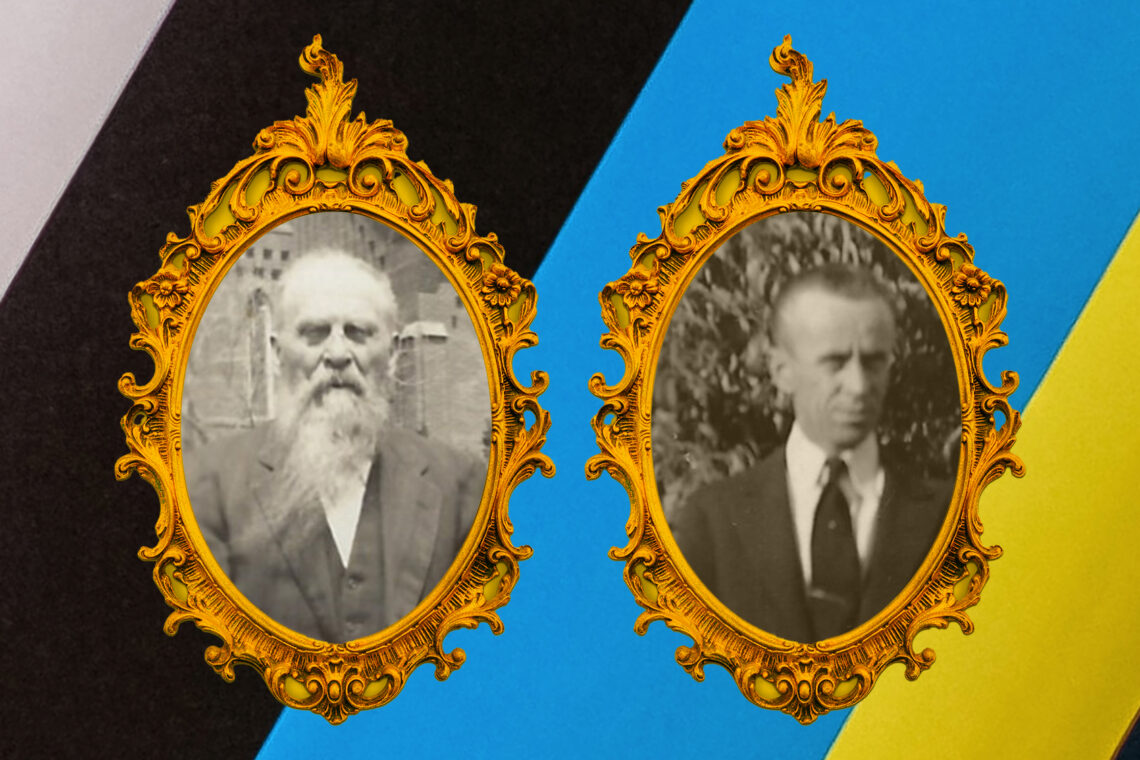Joseph and Joe
A Father’s Love
–a Prelude to The Letters—
While fathers love all their children, the affection a father has for his first-born son is different from any other love he possesses. The birth of this son announces to the world that he has contributed to the continuance of the family bloodline. Here is the person that will be the standard bearer of the family name to be passed to his son and his sons’ sons.’ Here is the living proof that his dreams of being immortal will continue. This tiny living breathing being carries his essence, the essence of his father and his father’s father and the myriad of male ancestors that have gone before. He can rest easy for he has fulfilled his own fathers most ardent desire for him—to have a son to bring honor and pride to the family.
In 1850, Joseph John was born in Obing Upper Bavaria. He was a handsome, well-to-do, scholarly young man. He excelled at music and became a university professor skilled at teaching numerous musical instruments. A man who grew to become self-assured–a lover of the good life and good times. In short, Joseph was every young girl’s dream. In Joseph’s mind every young girl existed to fulfill Joseph’s own heart’s desire. Life was to be lived and he had every intention of tasting all its fruits. Unfortunately, young men can become deeply enamored with themselves and forget that certain social rules apply. Joseph unwisely chose to taste the fruit of the beautiful but foolish young wife of one of the towns leading citizens. In German Catholic communities in the late 1880’s, this was not to be tolerated. The irate husband summoned the local Polizei to arrest this young Casanova. Not wanting to spend time in prison and knowing he had disgraced his father and family Joseph did the most sensible thing—escape to America. Carrying only a suitcase and the little money he had, he was forced to create a new life for himself. For several years, after disembarking at the New York harbor, his life became one of tantalizing experiences and adventures. Eventually Joseph would be led by that beautiful conjurer Serendipity to the small Texas town of Tours. Joseph had seen much of life and knew that a man eventually needs to settle down to begin his own home. In 1885 he offered a marriage proposition to Agatha, the widow of his friend from Bavaria, Frank. Even though she was wary of his farming abilities, she eventually accepted. Their mutual agreement was that she would provide him shelter, food, and a place to call home. He, in turn, would provide minimal help with the running of the farm. As a music professor, he would add to their income by teaching music lessons to the local children. Thus, she would be able to keep the land that her late husband had fought so hard to clear, plow, plant and make a life for her and their daughter Otillie. Joseph and Agatha were to be childless, but over the years, they would become foster parents to several local children whose own parents had been claimed by the harsh and brutal existence of the early Texas farm life. This marriage arrangement between he and Agatha lasted 19 years until Agatha’s death from pneumonia in February 1899.
Joseph was left a widower at fifty, with a farm, several foster children but no sons or daughters of his own. His stepdaughter Otillie had married Anton, built a home, and had her own growing family. Joseph established himself as a respected member of the church and community. With a kind and generous heart, he was a person who loved being with people. Using his love and knowledge of music, he had become the leader of the Concordia Brass Band. What Joseph needed to complete his life was a young wife to give him the sons he needed to help with the farm. He intended to approach this second marriage just as he had his first. It would be a basic contract of mutual understanding between two people who realized farm life was harsh with the only way to survive its constant demands was thru the shared work and sacrifice of the two parties involved. There was no entertainment of the idea of that frivolous thing called romance. What Joseph failed to realize that this time would be different. There were powerful forces beyond his knowledge of life and experience that would soon take over his world. Serendipity would bring the magic of love to him in ways he never thought possible.
Her name was Louisa. The daughter of a large immigrant family from Austria who, like him had settled in Tours Texas. A hard-working Catholic farm girl, she was diminutive and plain, yet pleasant and young enough, at twenty-five, to bear the children he needed. He went to Louisa’s parents and explained to them his desire to court Louisa with the intention of marriage. He explained that he was a man of good character and means, while older than the usual suitor, he could provide a house, land, milk cows, chickens, and anything she wanted to help her create a home for their family. He would ask that she in return care for his home and raise the children he hoped they would have. This seemed a reasonable proposition to them, and Louisa was informed of the decision. Happily, for all concerned, Louisa was as practical as Joseph. The thought of a lover that would come to the Texas black land to sweep her off her feet and take her to a faraway place had vanished long ago. The two were married in the fall of 1899.
Louisa would present Joseph his first son, Joseph John Junior, in August of 1900. He would be followed by William (b1901 d1902), John (1903), Clemens (1904), Gertrude (1906), and Andrew (1908). After a physical altercation with the parish priest which left Joseph humiliated, he decided to move his young family to Muenster Texas. In December of 1911, Joseph, and Louisa and their five living children would leave Tours and travel the 150-mile journey by train to their new home perched high on the hill overlooking the fledgling German community. Over the years Joseph would discover that the magic that crept into his life had nothing to do with possessions or farming the land, or mutual contracts but of the love and respect that develops between wife and husband through the life shared raising a family. It is the love that their children observe through the actions of their parents. This is not always overtly sexual but a gentle caring, a look exchanged, or the tone of voice used when spouses speak to each other. It is the foundation for the manifestation of the mutual values that they share with their children. This love is then spun around by the children and returned to the parents. It is an unseen magic that causes siblings to love each other and their parents till the end of their days.
This love is what causes fathers to look at each of their sons and daughters in wonder at what the universe has shared with him. While Joseph loved each of his children with an equal love, it was always the first-born son, Joe, that held a special place in his heart. The long-awaited bearer of his name. The legacy son who would own the land and pass it on to his sons. The dream that every man has of immortality come to life. There is no greater pride for a man than to have a son follow him around and imitate his every action and say the magical words I love you Papa or When I grow up, I am going to be just like you Daddy. Ancient words that never grow old. Joseph’s flaw as a father was to follow in the tradition of so many German Catholic fathers of the times –the father’s word was law in the family. No one was allowed to question his authority or deviate from what the father considered was best for them. The land was the reason for their existence and their legacy. They were to work the land for themselves and their children and their children’s children. As so often happens between fathers and sons, the father soon discovers that his vision is different from the dreams of his sons.
Joe was by temperament too much like his father. He grew to be a man of kindness who never met a stranger. Not afraid of demanding work, he was articulate, well read, a man of intellect, debonaire and well-liked by the young women. He learned to play the zither and mandolin. He, like his father Joseph, loved a good time. Josephs’ first-born son had inherited the same determination and need to be his own man. It was the stories of Joseph, having fled the homeland, creating a new life for himself, facing life head on, never stopping to look back that fueled Joe’s need to escape the drudgery of farm life and explore the exciting new world of the 1920’s in Texas. Father and son would come close to physical blows about this break from Josephs desires for the life of this future family scion. It would be the ever-gentle Louisa that would bring the two strong minded men to a reasonable solution. The two men came to a mutual agreement that Joe would continue living at home and help his father and brothers but would explore other jobs away from farming. A likable and personable young man, he chose to be a salesman, traveling from farm-to-farm selling Raleigh products, Singer sewing machines, and filling in as a substitute rural mail carrier. In the mid 1920’s Joe bought a café on Main Street in Muenster Texas. He would be the first in the family to make the break from farming completely and own his own business. With the café proving to be less than successful, in 1926 he would sell the café, pack his bags and head to the thriving metropolis of Dallas, Texas. Like Joseph before him he would be led by Serendipity to find the magical love that family brings to a man’s life. But Joe’s journey was destined to be an inherently different one filled with the magic of romance— led by Serendipity to his beautiful soulmate, Idabelle, who he would marry in 1934. The couple would remain childless. In 1949 Joe and Idabelle adopted a tiny, 15-month-old, blue eyed girl crowned with a wispy head of platinum blonde hair. She would complete Louisa and Joseph’s five granddaughters and three grandsons.
Remaining in Dallas until his retirement at sixty-five, Joe would never fulfill his father’s wish of running the family farm. His brother John, too, would abandon Muenster for the oil fields of west Texas in pursuit of his married lover. Gertrude would join the convent in Jonesboro Arkansas to become a bride of Christ. After marrying the love of his life, Rose, Andy would move to the city of Muenster to raise his own family. He would become a well- respected civic leader and a beloved pillar of the community. He managed the local FMA grocery store, eventually building his own grocery store carrying with pride the family name on the busy Highway 82 running thru Muenster. In the end It would be Joseph’s fourth son, Clem who would fulfill the dream of his father. Clem, like his brothers, would choose his bride Helen because she filled his world with love. Herself, a Texas farm girl, she would be his helpmate as well as his soul mate. They would join forces to work the land that had been his father’s legacy to his family. Clem’s would be the family that became the keepers of the land passed to his sons and their sons. The farmland would remain under the families care for over one hundred years.
During the first six years after Joe moved to Dallas, Joseph and Joe would write letters to one another telling of their daily lives. Josephs were filled with fatherly advice, telling of life on the farm, the community news and admonishing Joe to remain faithful to his Catholic upbringing. He wrote about his pride in his first-born son, but most importantly telling him of his love for him. After Joseph’s death in December of 1932, Joe tied a blue silk ribbon around the letters from his father and eventually placed them in his mother’s magical dome lid trunk. These letters are as great a legacy as the land that Joseph so cherished because they contain the very fatherly essence of the man Joseph had become. They are the written sharing of a man’s evolving understanding of the real meaning of fatherhood and the true values in life. He imparts to his son the necessity of allowing kindness, acceptance, and compassion to become the driving force of his being. Their message is as significant for today’s generation as they were almost ninety years ago. It’s time to say it: The essence of fatherhood is a magical unending love shared between a man and his children.



